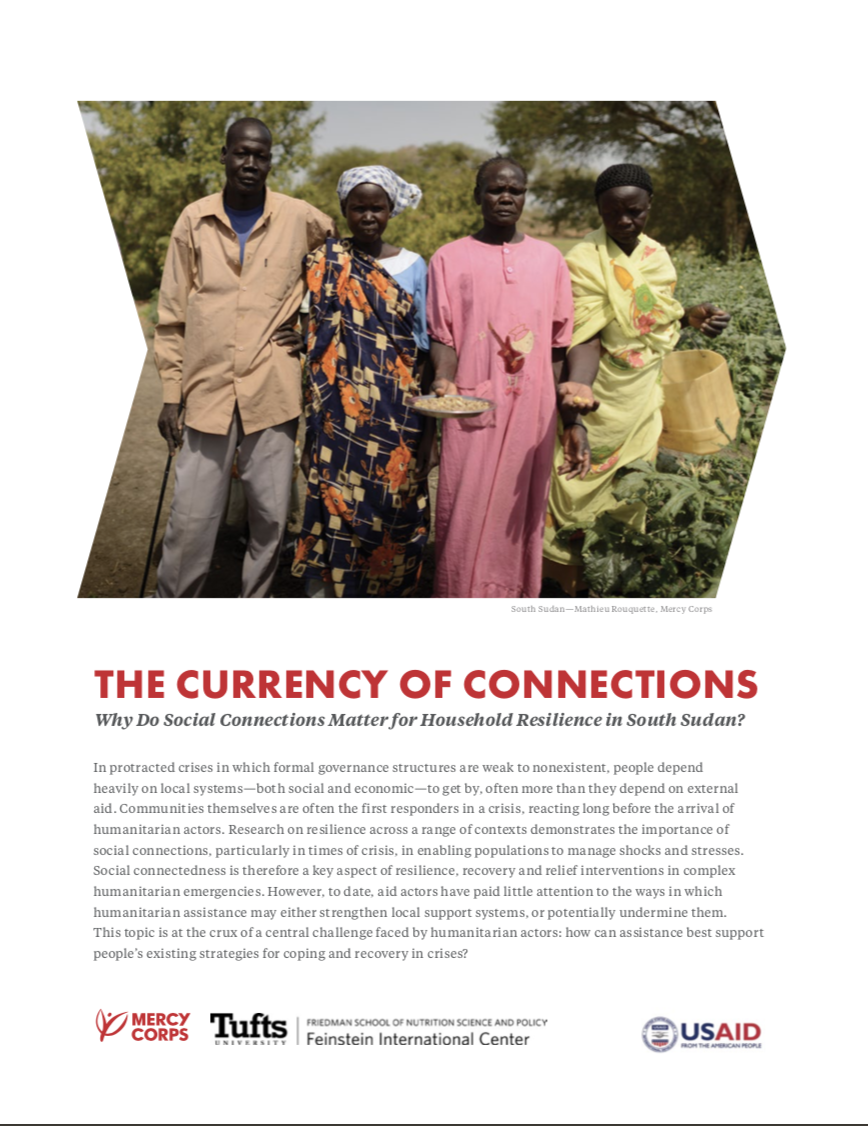In protracted crises where there are weak or nonexistent formal governance structures, people depend heavily on local systems—both social and economic—to get by. Communities themselves are often the first responders in a crisis, reacting long before humanitarian actors arrive. This study looked at how social connections during times of crisis enable populations to manage shocks and stresses in South Sudan. It found that:
- Households often rely more on support shared within their social networks than they do on assistance from external aid actors.
- Households maintain and build their social networks during crises using two key strategies: proactively sharing material support and marriage.
- Different socioeconomic and community level factors determine the relationships that households are able to form and the types of support they can exchange.
- Socially connected households are better able to diversify their diets and are more optimistic that they can cope and recover in face of future shocks and stresses. However, social connectedness can also be a source of household vulnerability as households maintain and build social connections for future support over immediate needs.
- When productive livelihoods collapse, households often share humanitarian aid as a means of maintaining and expanding their social networks. In some cases, households that receive cash transfer might be excluded from reciprocal support systems.
This study demonstrates that aid actors need to more holistically understand foundations of household vulnerability and sources of resilience during crises by considering social connectedness throughout program cycles, including in design, implementation, and evaluation phases.
The appendix is available here.
A brief version of the report is also available.
This mixed methods study is part of the Currency of Connections research initiative between Mercy Corps and the Feinstein International Center. It was supported by the USAID Bureau for Humanitarian Assistance.







